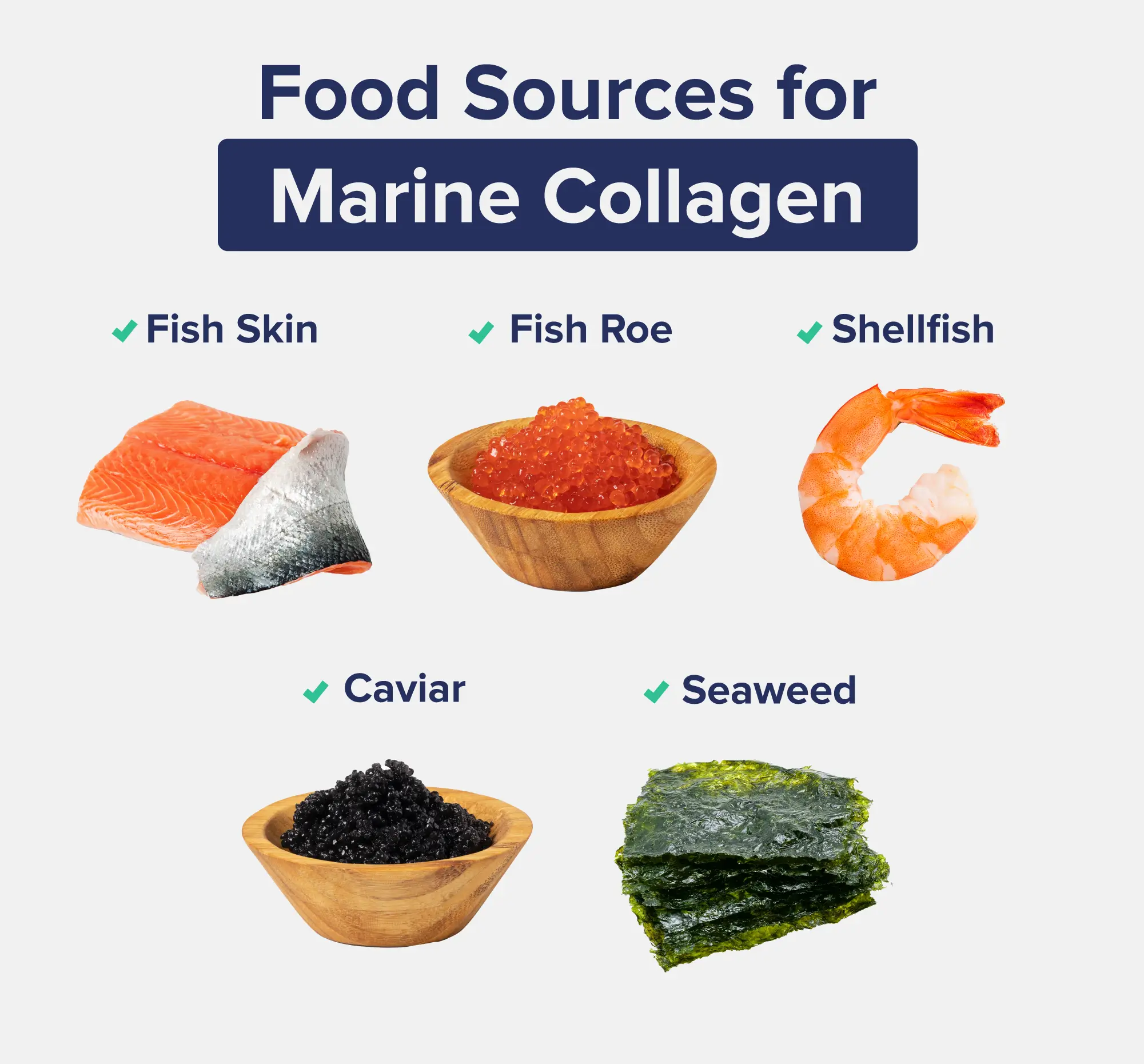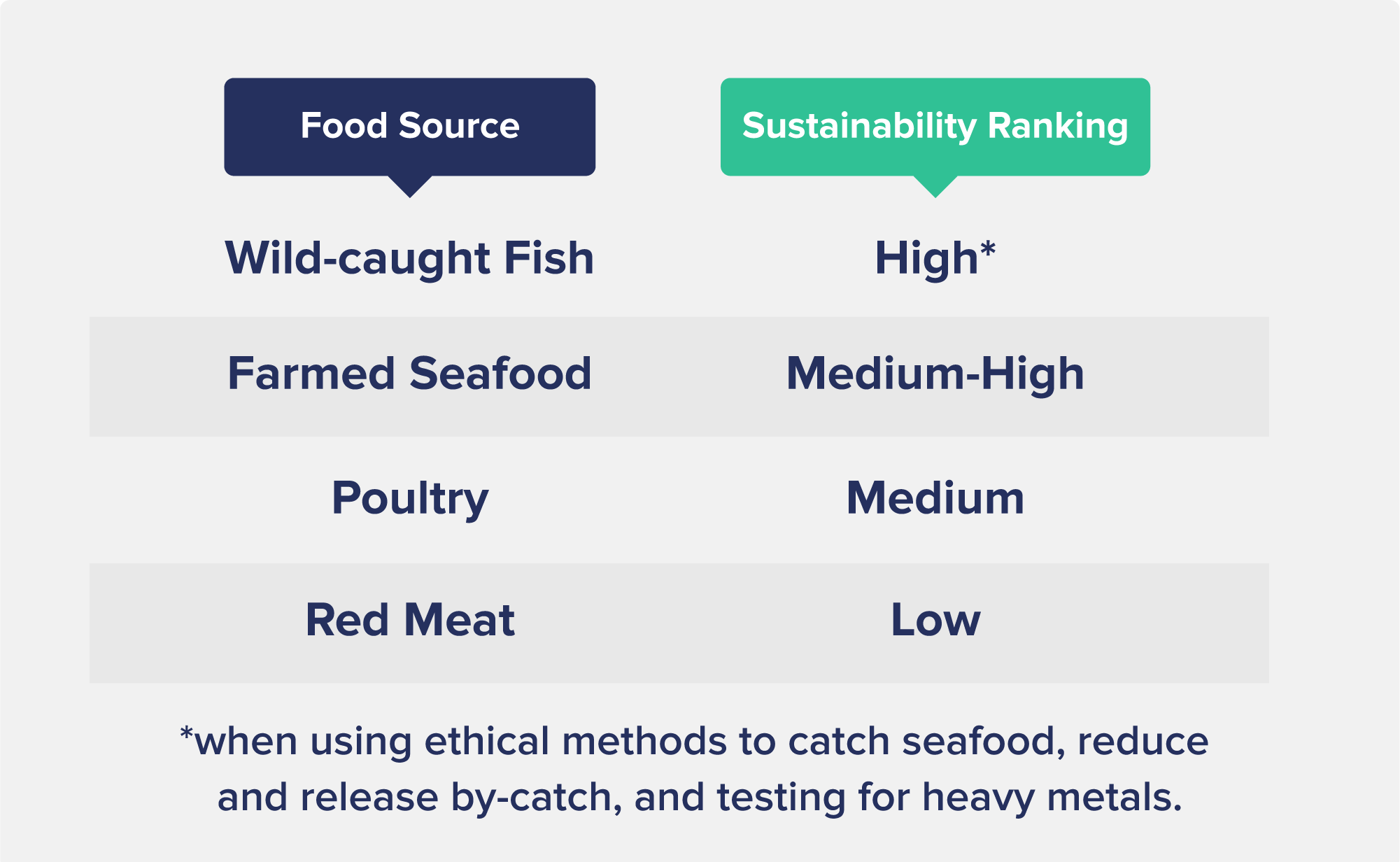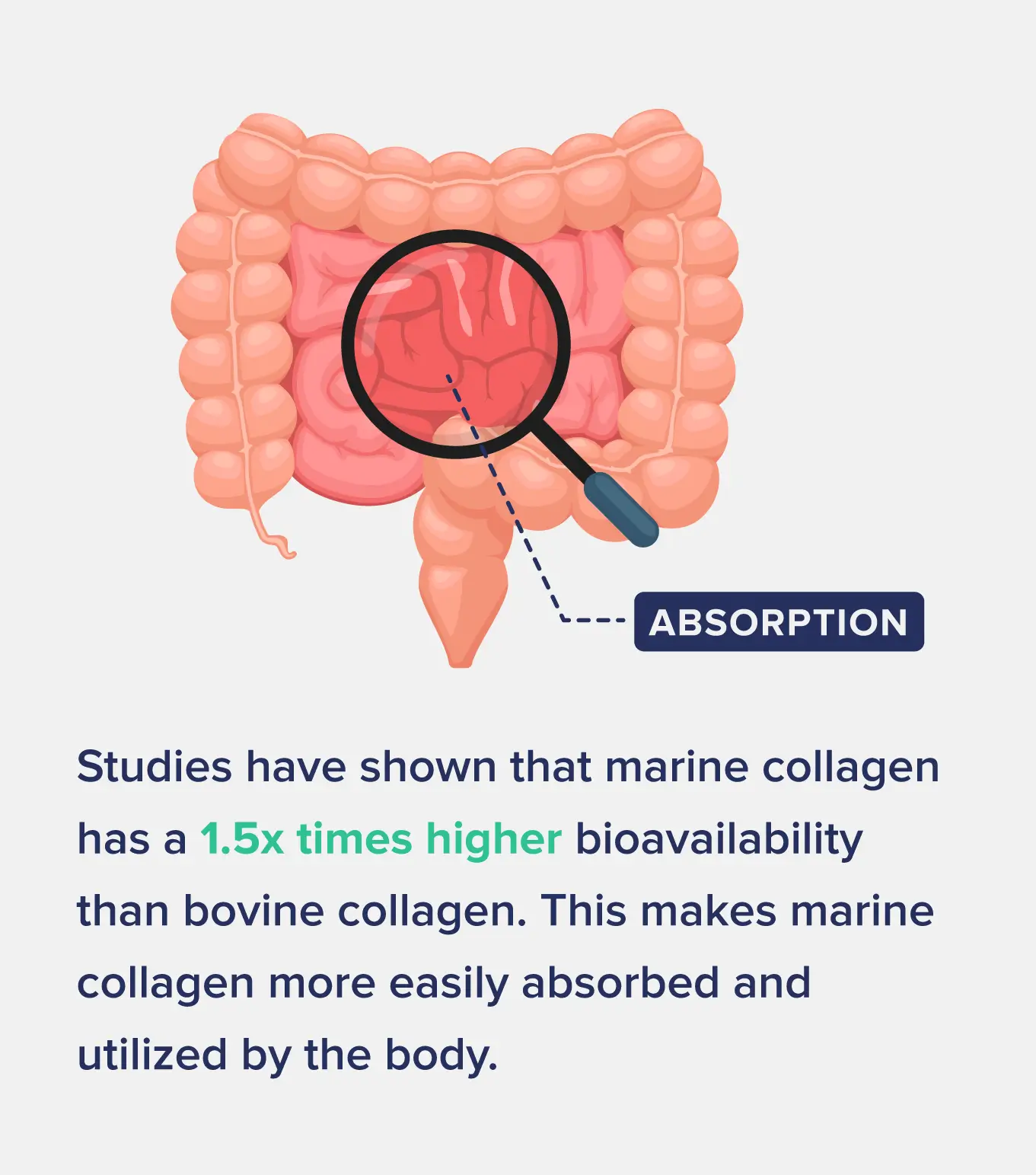Talk to a Registered Dietitian and use INSIDER20 for 20% off!
Talk to a real Dietitian for only $99: Schedule Now
Evidence Based Research To fulfill our commitment to bringing our audience accurate and insightful content, our expert writers and medical reviewers rely on carefully curated research.
Read Our Editorial Policy
Even if consumers are being baited with the “just slap a technical-sounding keyword in front of an established product to revitalize sales” method, marine collagen is no gimmick.
Indeed, marine collagen peptide supplements can offer several advantages over their more popular counterparts derived from beef and pork.
First things first, what is collagen anyway?
Collagen is the most abundant protein in the human body, and a key building block for skin, connective tissue, bones, and several other vital tissues.
Simply put, these tissues aren’t just supported by collagen, they’re actually made of this protein.
Hence, when our natural collagen production begins to wane—usually as we age into our early 30s—we begin to develop wrinkles and sagging skin.
Supplements can then be used to restore taut, smooth, hydrated skin.
Since collagen is a protein found in connective tissue, we can source it in its complete form from beef, pork, chicken, and other commonly consumed meats.
Never fear, vegetarians, because you can still piece together the amino acids (which string themselves into peptides) required for collagen production from other foods, though it requires a more consciously calculated approach.
Marine collagen is just what it sounds like: collagen derived from fish, jellyfish, shellfish, sharks, sponges, starfish, and other seafood.

As is the case with bovine collagen, marine sources can provide high amounts of whole collagen or pro-collagen building blocks.
So why seek out a marine collagen peptides supplement derived from some wriggling bottom feeder instead of simply going with the more familiar route?
The answer to this question is multifaceted, touching on issues of sustainability, safety, absorption capacity, and accommodation of personal beliefs/preferences.
Perhaps the most concrete and immediately important point differentiating marine collagen peptide supplements from bovine is the disease transmission issue.
As noted in this article about marine collagen from the Stazione Zoologica Anton Dorhn research institute in Napoli, Italy, “The use of bovine-derived products became a concern for a wider section of the population during the bovine spongiform encephalopathy (BSE), transmissible spongiform encephalopathy (TSE) and foot-and-mouth (FMD) crises that occured over the last few decades in all areas of the world, mostly in the United Kingdom and Asia.”
The article also goes on to note that, conversely, marine organisms have a much lower chance of carrying and/or transmitting these threatening diseases.
Of course, collagen supplement or not, most of us eat meat; our point here is not to sow distrust in the meat industry.
If you’re sourcing your collagen supplement (and/or meat in general) from well-vetted sources, this risk is still relatively low.
Still, these outbreaks happen fairly frequently throughout the world, and if you’re going to be supplementing anyway, this reason alone postures marine collagen peptides in a more favorable light.
Depending on the marine animal from which it is sourced, marine collagen peptides are more resistant to damage under high temperatures than meat-sourced collagen, which bodes well for consumer use.
According to an article by the University of Minho in Portugal, native marine collagen sources should be “selected among those displaying the higher denaturation temperatures, such as shark collagens.”
We’ll keep the organic chemistry lesson to a minimum, but long story short, the “triple helix” structure observed in shark collagens and a few other native sources breaks down at higher temperatures than other varieties of collagen, rendering it more stable.
Islam and Judaism are just two belief systems among many, religious or otherwise, that either completely forbid or severely restrict the consumption of certain meats, especially pork.
Moreover, there are plenty of pescaterians who make the choice to avoid all meat except seafood outside of religious motivation.
For all of these populations, fish offers an excellent source of more than collagen.
If fish is the only meat you eat, then make sure to get plenty, because it will make up for much of the nutrition you’re missing (iron, protein, etc.) with a highly needed shot of omega-3 fatty acids.
Well before the “green movement” ran its course through global agribusiness, automobile manufacturers, and other sectors, there were plenty of everyday people who cared about their carbon footprint (and still do).
To keep that positive trend going, we’ll note that in many cases, wild-caught fish is significantly more sustainable than most meats—especially red meat.

On the other extreme, farmed seafood is actually more damaging to the environment than poultry, since fisheries require large amounts of fuel.
Point being, if you can at least swap out farmed red meat with wild-caught fish in the case of marine collagen peptides supplements and/or your regular diet, you’ll definitely be making a positive difference in the environment.
Often referred to in the research world as “bioavailability,” marine collagen generally has a greater capacity for absorption in the human body than other forms of collagen.
According to this article from Life Research in Sandy, UT, collagen from marine sources absorbs more efficiently in the human body because it has a lower molecular weight than land mammal sources of collagen.
The article then goes on to state that marine sources of collagen contain “negligible biological contaminants” and a lower potential to cause inflammation.
While we agree with this statement, there’s a bit of a “real vs ideal” issue at work here: fish can contain mercury and pollutants.
Once again, it all comes down to the type of fish and the quality standards of the marine collagen peptides manufacturer.

Both the animal that the collagen supplement is sourced from and the brand you source your supplements from are integral to your success with a marine collagen peptides supplement.
While bovine and porcine collagen are absolutely viable for those without the above preferences or restrictions, they are generally less healthy to consume regularly than marine-based supplements.
We’ll let the record spin around one final time: only buy your bovine or marine collagen peptides from a reputable brand that you’ve researched thoroughly.